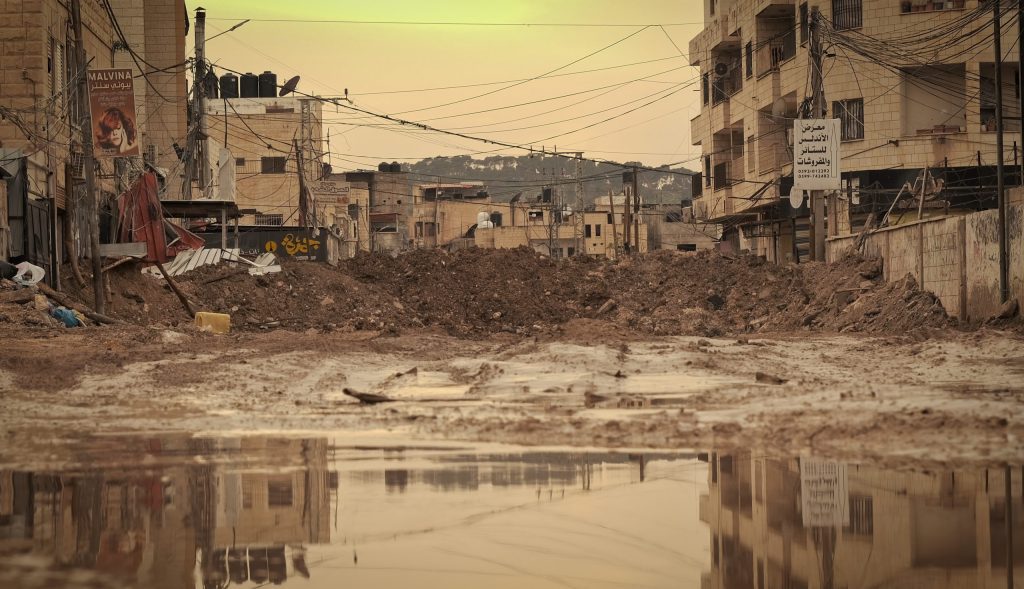Life at al-Kafif School in Jenin
On the surface, the al-Kafif Association school in Jenin appears to be just another regular school. Its long structure adorned with a Palestinian flag and its playground bustling with children playing in the sand gives the impression of an ordinary school day, until you get closer.
With bare feet and dressed in pajamas rather than uniforms, the children invite us to join their playful activity. “We are making mloukhiyyeh!” a girl, likely not older than nine, exclaims enthusiastically. “Come see our kitchen, we’ve made it big and nice.”
She proudly shows us a large rock stained green, the result of two girls crushing grass with smaller stones as they mimic preparing mloukhiyyeh, a green jute leaf often featured in Palestinian dishes for its hearty stew.
Displacement Stories
Jenin’s al-Kafif school has recently transformed into a temporary shelter for around 20 Palestinian families from the Jenin refugee camp, following Israel’s ongoing military operations, known as “Operation Iron Wall.” Reports indicate that about 90% of the camp’s residents have fled due to the destruction brought on by the Israeli army, which has demolished numerous buildings and most civilian infrastructure.
In this troubling context, the al-Kafif school stands as a beacon of resilience, with Um Yahya, a teacher, noting the quick transition from educating children to mediating disputes among adults over food donations. Despite the lack of governmental funding, the school has mobilized community support, collecting and distributing essentials like food and blankets to displaced families.
Community Spirit Amidst Adversity
Despite their dire circumstances, many displaced residents continue their daily jobs, albeit without most of their possessions. Nazmi Jowhar, a 53-year-old grandfather who has taken refuge at the school, shares his painful memories of having to abandon his herd of sheep and family home. “This loss is devastating,” he states, reflecting on the deep-rooted ties to their community and heritage.
As Jowhar recounts the intensity of airstrikes that drove his family away, he highlights how the shared experience of displacement has fortified their communal bonds. “The camp was our identity,” he emphasizes, “and we brought this sense of community with us.” He describes the al-Kafif school as a smaller version of the camp, where displaced families continue to support one another.
Memories and Aspirations
Halima, a grandmother and former teacher from the camp, conveys similar sentiments of loss and hope. Despite her heartache for the destruction of her home and community, she finds solace in the solidarity within the school. “Being part of the Jenin refugee camp binds us,” she explains, stressing how shared experiences and memories define their identities as refugees. Her longing to return to the camp is palpable, as she clings to the memories tied to the place where her family has deep roots.
As we leave, the displaced children at al-Kafif school resume their play, seemingly oblivious to the chaos surrounding their former home. “This is my room, and these are my toys,” a girl remarks, describing their imaginary house in the camp they hope to return to soon, reflecting the indomitable spirit of resilience among the children amidst their current hardships.



